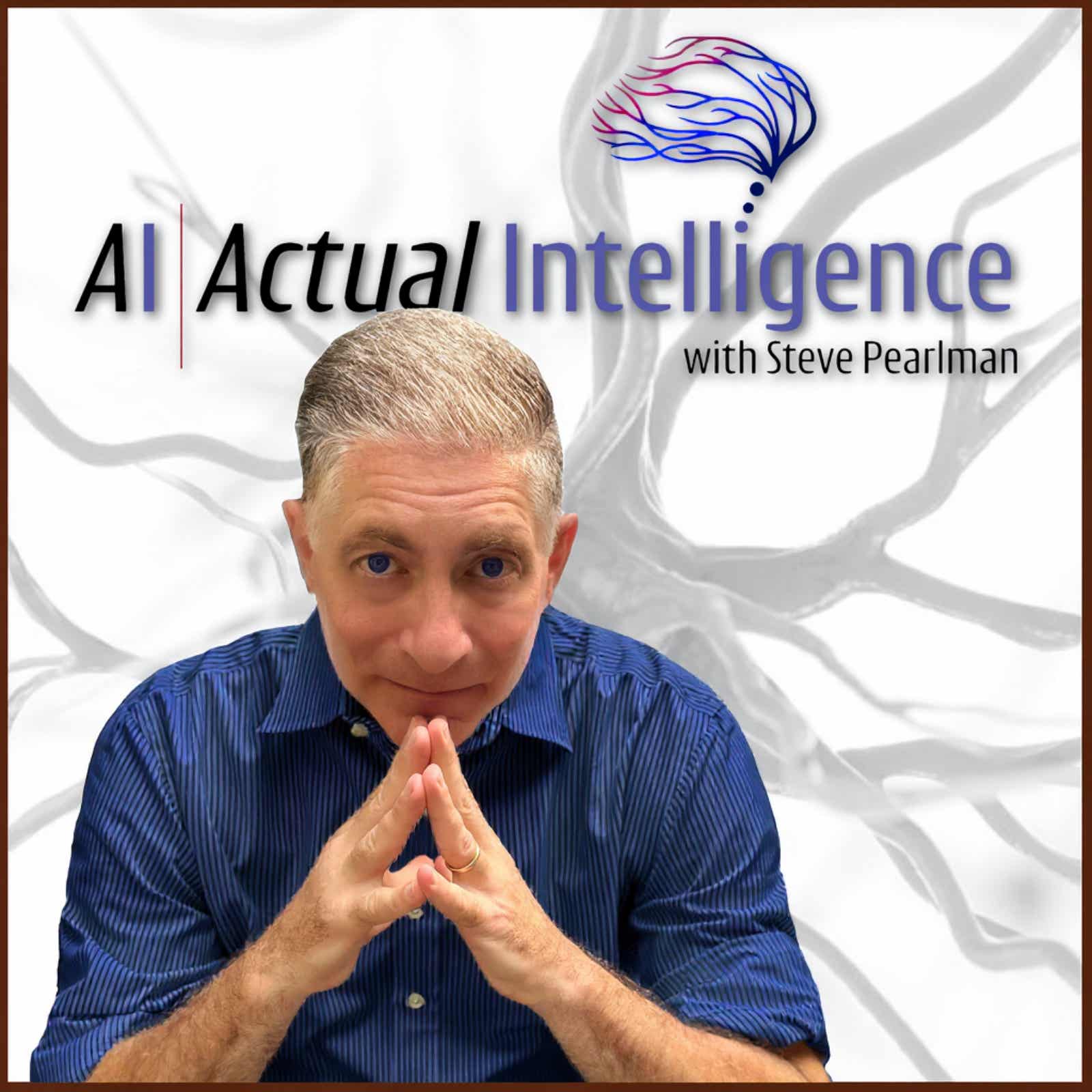

Actual Intelligence with Steve Pearlman
Steve Pearlman, Ph.D.
One of the world's premiere critical thinking experts, you can view Dr. Steve Pearlman's viral Editor’s Pick TEDx talk here: https://youtu.be/Bry8J78Awq0?si=08vBAR1710mgQt0i pearlmanactualintelligence.substack.com
Episodes
Mentioned books

Jan 11, 2022 • 46min
Critical Thinking vs. Content: Resolving the Frictions
Do you want to teach critical thinking but struggle to do so given how much content you need to cover?Do you feel departmental, institutional, or disciplinary pressures to cover certain material?What are the four major objections educators voice about teaching critical thinking relative to content?Why are critical thinking and content actually never at odds?What does the Brad Pitt movie, Moneyball, have to do with all of this?Find out all of this and more as Steve not only answers all of the above, but empowers you with the knowledge and responses you need to keep critical thinking at the forefront of education. This is a public episode. If you would like to discuss this with other subscribers or get access to bonus episodes, visit pearlmanactualintelligence.substack.com

Jan 4, 2022 • 1h 6min
Ungrading: What? How? Why?
Jesse Stommel of the University of Denver, author of An Urgency of Teachers, and “ungrading” maven joins Steve for a thought provoking and, at times, joyously contentious discussion about inviting students to assign their own grades to themselves. Ultimately, the conversation swerves into grading’s and education’s implications for society and politics. But who could have seen that coming? This is a public episode. If you would like to discuss this with other subscribers or get access to bonus episodes, visit pearlmanactualintelligence.substack.com

Dec 28, 2021 • 51min
A Thousand Neuroscientific Imperatives for Teaching Critical Thinking
Steve delves into A Thousand Brains: A New Theory of Intelligence, by Jeff Hawkins, which holds immediate implications for the teaching of critical thinking as understood through the literal functions of neurons! But contrary to the title, teaching critical thinking doesn’t become easier through thousands of things; it actually becomes easier, and more successful, through very few. This is a public episode. If you would like to discuss this with other subscribers or get access to bonus episodes, visit pearlmanactualintelligence.substack.com

Dec 17, 2021 • 44min
The Critical Thinking Skills Educators Value
Want to know what your colleagues mean when they talk about "critical thinking"? Want to know how to stimulate dialogue about it at your institution? Want to know why Steve is like Annie Wilkes?Two recent studies shed new light on how educators conceptualize critical thinking and, more importantly, which particular aspects of critical thinking they value most. But while the studies in one sense empower educators to discourse about critical thinking at their institutions, they also expose some challenges to critical thinking education. Ultimately, Steve uses the articles to offer specific, easily applied approaches to teaching critical thinking.TheCriticalThinkingInitiative.org/Podcasts This is a public episode. If you would like to discuss this with other subscribers or get access to bonus episodes, visit pearlmanactualintelligence.substack.com

Apr 12, 2021 • 26min
Creating "solutionaries" with Zoe Weil
We're excited to welcome Zoe Weil from the Institute for Humane Education Zoe is the author of The World Becomes What We Teach and is a notable TedX contributor. Zoe focuses her work on helping educators build "solutionaries" who tackle real world problems. Join us as we discuss the overlays between her work and ours, and critical thinking in general. This is a public episode. If you would like to discuss this with other subscribers or get access to bonus episodes, visit pearlmanactualintelligence.substack.com

Mar 25, 2021 • 23min
Fighting Fake News: The Critical Thinking Rabbit Hole
A recent article in The New York Times argued that critical thinking is a dangerous "rabbit hole" and isn't the right tool for fighting "fake news." Dave and Steve discuss the article's alternative, and, of course, advocate for stronger critical thinking in media literacy. This is a public episode. If you would like to discuss this with other subscribers or get access to bonus episodes, visit pearlmanactualintelligence.substack.com

Dec 28, 2020 • 22min
Improving Outcomes When Lecturing Online (or not)
Did you know that at any given point during an online lecture, 40% of students' minds are wandering? Join Dave and Steve to learn about "persistence" vs. "transience" in memory, and how to improve your learning outcomes. This is a public episode. If you would like to discuss this with other subscribers or get access to bonus episodes, visit pearlmanactualintelligence.substack.com

Nov 16, 2020 • 29min
Fake News but Real Education
Dave and Steve return with a podcast on combating fake news and why we should all be jealous of Finland. Also, the new Critical Thinking Initiative Online learning experience, and Steve's new book, America's Critical Thinking Crisis: The Failure and Promise of Education. This is a public episode. If you would like to discuss this with other subscribers or get access to bonus episodes, visit pearlmanactualintelligence.substack.com

Jul 7, 2020 • 25min
How Humans Learn
Join us for an exciting announcement and an interview with John Eyler, Ph.D., author of How Humans Learn: The Science and Stories Behind Effective College Teaching. Wishing everyone wellness, safety, and satisfying teaching (or a much needed break!) in this time of COVID. This is a public episode. If you would like to discuss this with other subscribers or get access to bonus episodes, visit pearlmanactualintelligence.substack.com

Mar 22, 2020 • 15min
Quick Tips for Online Learning Satisfaction
Given the sudden mass migration to online learning because of COVID19, The Critical Thinking Initiative offers this brief, "emergency" podcast about simple measures every instructor, K-Ph.D.--can take to ensure that the online learning experience is a positive one for the students. Please feel encouraged to share this one with everyone you know who has suddenly had to transition their teaching online. This is a public episode. If you would like to discuss this with other subscribers or get access to bonus episodes, visit pearlmanactualintelligence.substack.com


